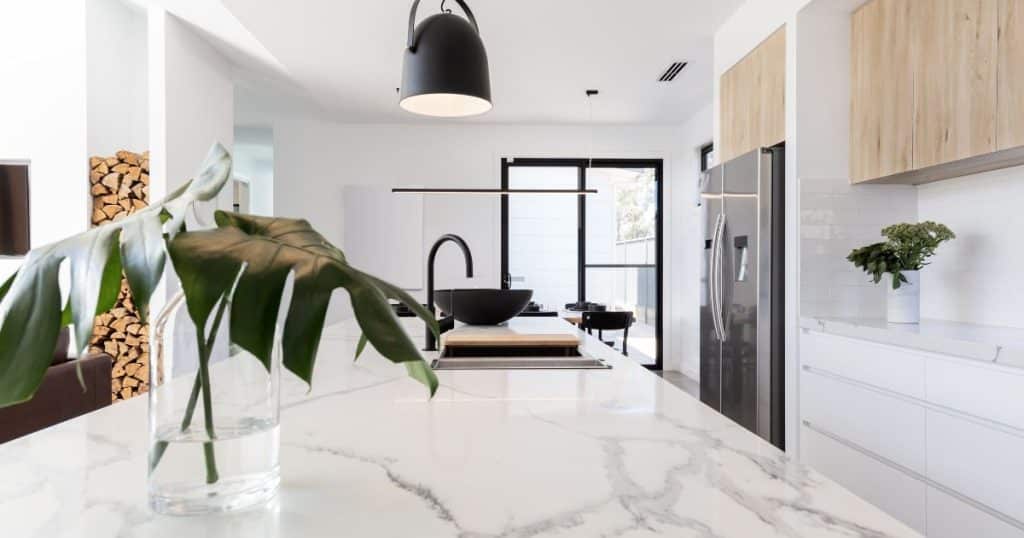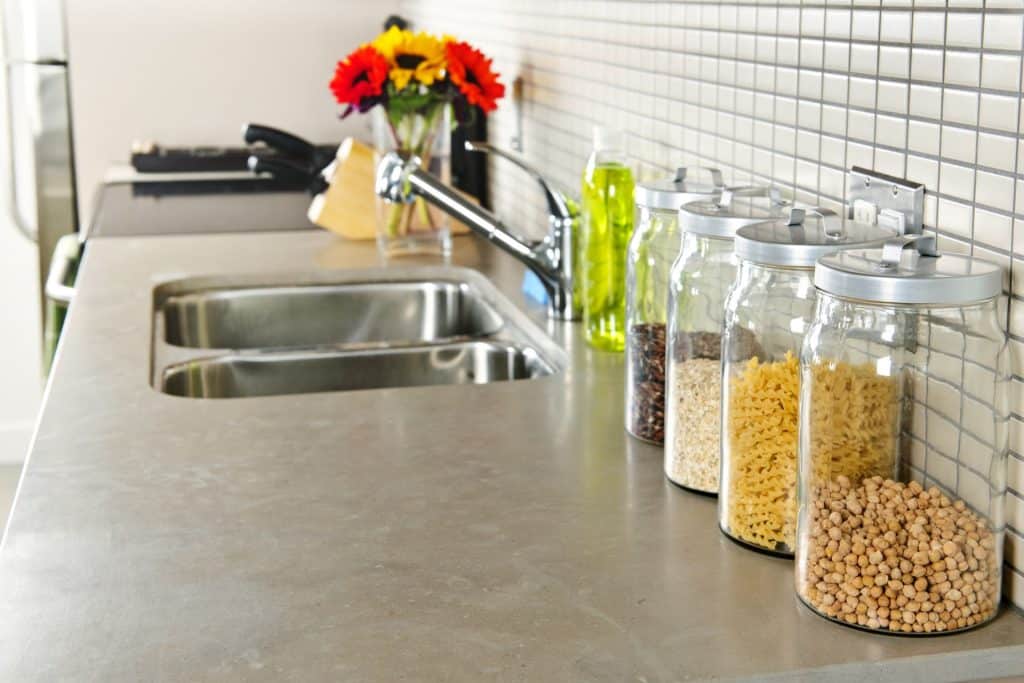
Imagine the heart of your home beating with the rhythm of the Earth. That’s the magic of using natural stones in the kitchen. Their timeless allure infuses a unique blend of beauty, charm, and sophistication into your space.
Understanding the Appeal of Natural Stones
Natural stones have been part of human habitats since time immemorial. They have survived the test of time, emerging as a top choice for modern kitchens. Here’s why:
- Unique Patterns and Colors: Each stone piece is distinct, offering a variety of colors and patterns.
- Durability: Stone is tough and hardwearing – perfect for a busy kitchen.
- Adds Value: Incorporating natural stones in your kitchen boosts your home’s resale value.
The Variety of Natural Stones for Kitchen Use
There’s a wide array of natural stones you can consider for your kitchen. Here’s a glance at a few popular choices:
Granite
Often regarded as the workhorse of natural stones, granite sets the bar high for durability. Its resistance to heat, scratches, and stains makes it a darling for kitchen countertops. Moreover, granite’s diversity in color and pattern – from the pitch black of Absolute Black granite to the striking blue hues in Blue Bahia granite – can harmoniously blend with various kitchen styles, from rustic to contemporary.
Marble
If you’re aiming for a luxurious, high-end aesthetic, marble is your go-to. This natural stone carries an innate elegance that can turn any kitchen into a gourmet chef’s paradise. The characteristic veins of ‘Carrara’ marble, with its white and gray design, or the bold, dramatic patterns in ‘Calacatta Gold’ marble, offer an unmatchable, chic touch. However, its beauty comes with a caution: marble can be prone to staining and scratching. Regular sealing and careful use are required to maintain its pristine condition.
Quartzite
A stone that marries the resilience of granite with the aesthetic appeal of marble? Enter quartzite. This metamorphic rock is ideal for homeowners seeking the sophistication of marble without the upkeep concerns. ‘Taj Mahal’ quartzite, with its soft white hue and subtle streaks, or ‘Sea Pearl’ quartzite, offering tranquil green-gray shades, can bring a stunning, understated elegance to your kitchen. Keep in mind, though, quartzite still needs occasional sealing to ensure its longevity.
Soapstone
Perhaps the unsung hero among natural stones, soapstone offers a plethora of advantages for the kitchen. This stone is nonporous and, unlike marble, it’s less likely to stain. It’s incredibly heat-resistant – hot pots and pans won’t mar its surface. Plus, its soft, soapy feel gives it its name and a unique tactile experience. Whether you choose the gentle, powdery look of ‘Architectural’ soapstone or the more dramatic ‘Veined’ variety, soapstone can create an inviting, cozy atmosphere in any kitchen.
Maintaining Natural Stones
How to Keep Your Natural Stones Looking New
Maintenance is key to preserving the look and functionality of natural stones in your kitchen. Here are some tips:
- Clean Spills Immediately: Natural stones can stain, especially if they’re porous. Don’t let spills linger!
- Use a Stone-friendly Cleaner: Avoid harsh chemicals that can damage the stone surface.
- Regularly Seal the Stones: Sealing provides a protective barrier against stains and damage.
Natural Stones: Transforming Kitchens One Stone at a Time
With natural stones in the kitchen, you’re not just updating your space. You’re creating an earthy atmosphere that’s timeless and captivating. So, are you ready to unearth the magic of natural stones in your kitchen?
FAQ Section
Q1: Can all natural stones resist heat and scratches?
No, not all stones are equal. Some, like granite and quartzite, resist heat and scratches, while others, like marble, are more susceptible.
Q2: How often should I seal natural stones in my kitchen?
The frequency depends on the stone type and its use. Some stones require sealing every 6-12 months, while others might need it less often.
Q3: Are natural stones eco-friendly?
Yes, they are eco-friendly. They’re derived from the Earth and can be recycled, reducing environmental impact.

